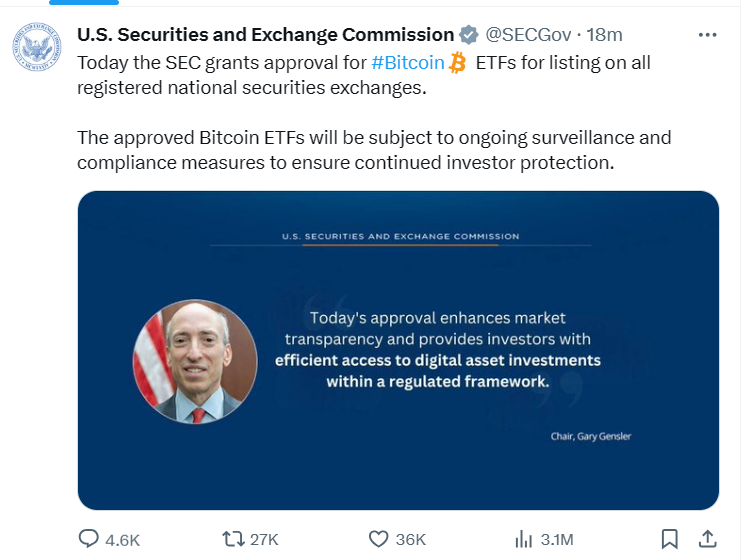In a scene ripped from a digital thriller, the U.S. The Securities and Exchange Commission (SEC) saw its Twitter account hijacked by an unknown entity, plunging the crypto world into a roller coaster ride of frenzied excitement and crushing disappointment.
The perpetrator unleashed a fabricated announcement claiming approval of Bitcoin Exchange Traded Funds (ETFs), a long-awaited development that ignites fervent anticipation within the cryptocurrency space.

The fraudulent tweet, crafted to resemble an official SEC pronouncement, spread like wildfire through social media, fueled by its tantalizing message.
Compounding the problem are zero-day vulnerabilities like the MOVEit SQLi, Zimbra XSS, and 300+ such vulnerabilities that get discovered each month. Delays in fixing these vulnerabilities lead to compliance issues, these delay can be minimized with a unique feature on AppTrana that helps you to get “Zero vulnerability report” within 72 hours.
News outlets scrambled to verify the news, propelling Bitcoin towards its dizzying peak, a 25% surge fueled by unbridled investor euphoria.
Briefly, it seemed as if regulatory hurdles had crumbled, granting Bitcoin mainstream validation and access.
Anatomy of the Hack:
Further investigation by X revealed the attacker’s modus operandi: they gained control of a phone number associated with the SEC’s account through a third-party service.
X, now owned by Elon Musk, confirmed that the SEC hadn’t implemented two-factor authentication, a crucial security measure, at the time of the hack. This lapse in cybersecurity protocol facilitated unauthorized access.
However, this digital joyride was destined for a brutal stop. The SEC swiftly debunked the tweet, shattering the illusion of a regulatory green light.
Try Kelltron’s cost-effective penetration testing services for free to assess and evaluate the security posture of digital systems
